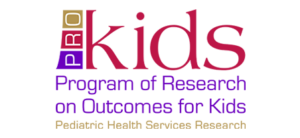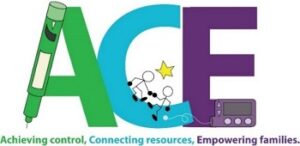- Children and Young Adults
- Chronic Conditions
- Diabetes
- Engagement in Research
- HIPxChange
- Quality and Safety
- Stakeholder Engagement
*Free registration is required to use the toolkits provided within HIPxChange. This information is required by our funders and is used to determine the impact of the materials posted on the website.
What is T1D-SMART?
The Type 1 Diabetes Self-Management Resources Toolkit (T1D-SMART) is a resource to help clinicians and healthcare organizations improve health outcomes and quality of life for youth with type 1 diabetes (T1D) and their families.
The toolkit contains materials to deliver group-based family-centered self-management support by tailoring self-management resources to the needs and preferences of families of youth with T1D. The groups meet 4 times over 1 year for 75 minutes each.
Included in the toolkit are materials for planning, implementing, and evaluating the delivery of family-centered self-management resources in a group-based format integrated with routine T1D clinic visits.
This toolkit arises from Project ACE (Achieving control, Connecting resources, Empowering families), a multi-site randomized trial that evaluated the effectiveness of these resources. Project ACE’s intervention was designed to improve both A1c for youth, as well as quality of life for youth and families, by addressing specific challenges that families living with T1D face every day. For details about the trial, see Fiallo-Scharer et al., 2017.
What’s the impact of the family-centered resources for T1D self-management?
“Being in the study has brought down [my child’s] A1c. In the past five years, these past two visits have been the lowest it has ever been!”
– Parent Participant
“[Because of sessions] she’s missing a lot less classroom time, feeling less stigmatized by spending all this time in the office. Making this big stride towards independence.”
– Parent Participant
“[My mom] generally keeps quiet in these situations, but I noticed she talked a lot. She felt comfortable opening up, and it was really helpful to talk with others who could relate.”
– Adolescent Participant
“I saw over and over again parents coming to a recognition of the maturity level of their kids. That process of realizing ‘Let’s take some intentional, deliberate steps to get [my kid] a little more independent.”
– Facilitator
Who should use this toolkit?
T1D-SMART is intended for:
- Hospital administrators and quality improvement staff
- Clinicians and staff who care for youth with T1D, including physicians, advanced practice professionals, nurses, medical assistants, health educators, and health psychologists
- Patient and family advocates in collaboration with healthcare professionals
Development of this toolkit
Toolkit materials were developed at pediatric academic medical centers with extensive input from families living with T1D as well as multidisciplinary pediatric healthcare professionals and researchers. Development of this toolkit was supported through a Patient-Centered Outcomes Research Institute (PCORI) Award (IH-1304-6279). Additional support was provided by the Community-Academic Partnerships core of the University of Wisconsin Institute for Clinical and Translational Research, grant 9U54TR000021 from the National Center for Advancing Translational Sciences (previously grant 1 UL1 RR025011 from the National Center for Research Resources). The content is solely the responsibility of the authors and does not necessarily represent the official views of the National Institutes of Health or other funders.
Key Publication
Fiallo-Scharer R, Palta M, Chewning BA, Rajamanickam V, Wysocki T, Wetterneck TB, Cox ED. Impact of family-centered tailoring of pediatric diabetes self-management resources. Pediatr Diabetes. 2019 Nov;20(7):1016-1024.
Project team
- Elizabeth Cox, Principal Investigator
- Betty Chewning, Co-Investigator
- Rosanna Fiallo-Scharer, Co-Investigator
- Mari Palta, Co-Investigator
- Tosha Wetterneck, Co-Investigator
- Tim Wysocki, Co-Investigator
Acknowledgments
Mandi Speer and Thuy Dan Tran contributed to the preparation and editing of the materials presented in this toolkit.
Contact us
Please contact us directly with any questions regarding this toolkit or our research. We also welcome collaborations that support implementation of the toolkit resources, as well as ongoing research that advances the delivery of the very best care to youth and families.
Elizabeth Cox, MD, PhD
Associate Professor, Department of Pediatrics
Director, Program of Research on Outcomes for Kids (PROKids)
University of Wisconsin School of Medicine and Public Health
ecox@wisc.edu
References
- Fiallo-Scharer R, Palta M, Chewning BA, Rajamanickam V, Wysocki T, Wetterneck TB, Cox ED. Impact of family-centered tailoring of pediatric diabetes self-management resources. Pediatr Diabetes. 2019 Nov;20(7):1016-1024.
- Fiallo-Scharer R, Palta M, Chewning BA, Wysocki T, Wetterneck TB, Cox ED. Design and baseline data from a PCORI-funded randomized controlled trial of family-centered tailoring of diabetes self-management resources. Contemp Clin Trials. 2017 Jul;58:58-65.
- Ye CY, Jeppson TC, Kleinmaus EM, Kliems HM, Schopp JM, Cox ED. Outcomes That Matter to Teens With Type 1 Diabetes. Diabetes Educ. 2017 Jun;43(3):251-259.
- Chung JS, Young HN, Moreno MA, Kliems H, Cox ED. Patient-centred outcomes research: brave new world meets old institutional policies. Fam Pract. 2017 Jun 1;34(3):296-300.
- Cox ED, Fritz KA, Hansen KW, Brown RL, Rajamanickam V, Wiles KE, Fate BH, Young HN, Moreno MA. Development and validation of PRISM: a survey tool to identify diabetes self-management barriers. Diabetes Res Clin Pract. 2014 Apr;104(1):126-35.
Toolkit Citation
Cox E, Chewning B, Fiallo-Scharer R, Palta M, Wetterneck T, Wysocki T. “Type 1 Diabetes Self-Management Resource Toolkit (T1D-SMART).” Madison, WI: University of Wisconsin – Madison School of Medicine and Public Health, Department of Pediatrics, and UW Health Innovation Program; 2017. Available at: http://www.hipxchange.org/T1DSMART.


 Mandi Speer, BS, is a Student Research Assistant with the
Mandi Speer, BS, is a Student Research Assistant with the  Thuy Dan Tran, BS, is a Research Specialist with the
Thuy Dan Tran, BS, is a Research Specialist with the 


